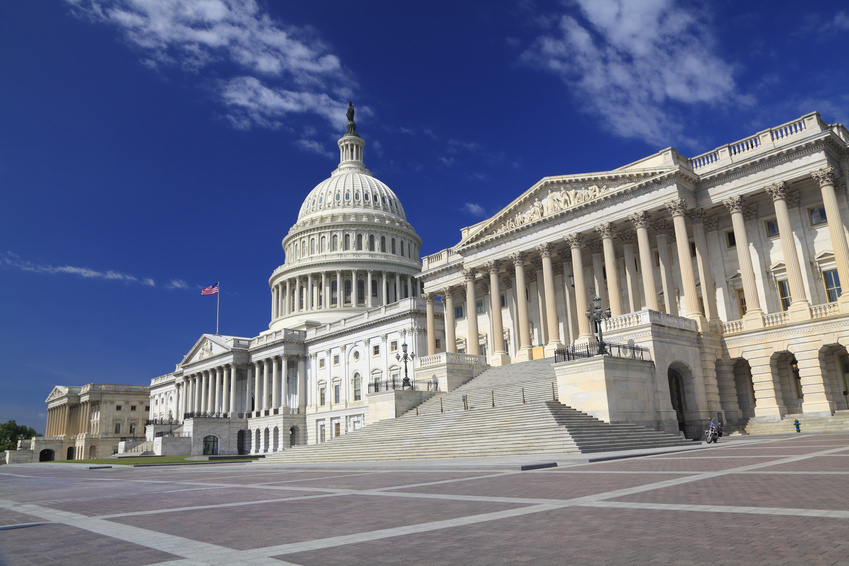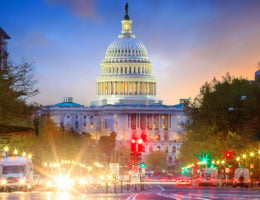The annual updates on enforcement trends and priorities this year build upon last year’s guidance by substantially sweetening the calculus for whistleblowers and voluntary self- disclosures, and reflecting the nation’s rapid adoption of disruptive technology tools especially including AI. Previous trends, such as the government’s ongoing enforcement effort aimed at protecting U.S. intellectual property from perceived threats by foreign adversaries, are not letting up, but instead are increasing in specificity as to related corporate compliance expectations. As companies increasingly engage in the race to use and sell AI tools and the datasets that fuel them, now is a great time to also put in place corporate compliance strategies to avoid becoming the next poster child for the government’s deterrence efforts.
The Foreign Extortion Prevention Act (FEPA), enacted on 14 December 2023, as part of the National Defense Authorization Act for Fiscal Year 2024, establishes criminal liability for foreign officials soliciting or accepting bribes from specific US entities. FEPA criminalizes corrupt demands by foreign officials and carries potential penalties of up to USD 250,000 fine and 15 years imprisonment. Aligned with international anti-corruption conventions, FEPA reinforces the Biden Administration’s national security priority to combat corruption, and may impact FCPA investigations.
On 3 March 2023, the Criminal Division of the United States Department of Justice published details of a three-year Pilot Program Regarding Compensation Incentives and Clawbacks. The Compensation Pilot Program is effective 15 March 2023 and from that date it will be applicable to all corporate criminal matters handled by the DOJ Criminal Division. At the same time, DOJ also updated its Evaluation of Corporate Compliance Programs guidance document to reflect the criteria introduced by the Compensation Pilot Program, among other updates.
On 15 September 2022, Deputy Attorney General Lisa Monaco issued a memorandum to Department of Justice prosecutors entitled “Further Revisions to Corporate Criminal Enforcement Policies Following Discussions with Corporate Crime Advisory Group”. As has become common in recent years (with a brief intermission under Deputy Attorney General Rod Rosenstein who objected to the practice), such memoranda and other Department pronouncements have come to herald key developments in DOJ policy on corporate criminal enforcement and related practice. These memoranda are therefore closely watched by the defense bar and corporate counsel alike.
Recently, the U.S. Securities and Exchange Commission (“SEC”) Division of Corporation Finance issued a sample letter advising companies on their potential need to disclose direct and indirect impact of Russia’s invasion of Ukraine and the related international response on their operations. Sample letters generally do not create any new legal obligations; instead, they signal the areas of potential scrutiny by the SEC and illustrate the types of risks the SEC may view as material.
This week Florida’s two senators, Marco Rubio and Rick Scott, introduced a bill imposing several China specific public disclosure obligations, including disclosures related to sourcing activities related to products utilizing forced labor from Xinjiang, China. The Bill would apply to all publicly traded companies and supplements the proposed SEC environmental, social and governance disclosures, and the Uyghur Forced Labor Prevention Act, which will come into effect in June 2022.
The SEC’s recently released (and long-awaited) proposed rule changes that will require disclosure of climate-related risks are likely to have significant supply chain implications. The Proposed Rule would require listed companies to disclose information on climate-related risks and Greenhouse gas emissions; both of these disclosure categories include data related to corporate supply chains, and thus the Proposed Rule would essentially require public companies to obtain and analyze climate risks and climate impact data related to its upstream and downstream suppliers.
On Monday the SEC released its long-awaited proposed rule changes that will require disclosure of climate-related risks that are reasonably likely to have a material impact on registrants. As noted in its press release, the SEC has focused on climate-specific rules in order to “provide investors with consistent, comparable and decision-useful information for making their investment decisions.”
In an era where supply chain disruptions and risks are regular front-page news, the Biden Administration has been undertaking a range of initiatives intended to create resilient supply chains that reflect the administration’s policies around national security, foreign policy, human rights and the US economy.
The New York State Senate this month unveiled the “Fashion Sustainability and Social Accountability Act”. The Act, if enacted, will require every fashion retail seller and manufacturer that does business in New York and has over USD 100 million in annual worldwide gross receipts to make a number of sustainability and social disclosures.









